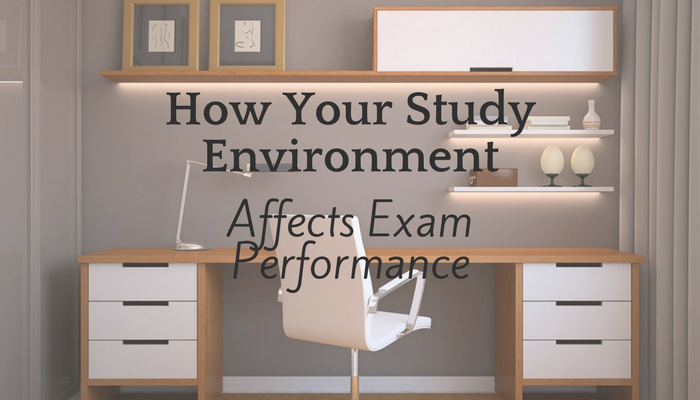Do you have a go-to study spot when prepping for actuarial exams? The library, a coffee shop, dorm room, company study room?
Your choice of where to study affects how well you recall information on exam day—let’s understand how to use this to our advantage.
How does your study location affect actuarial exam performance?
Context-dependent memory
Context-dependent memory is the finding that information is easier to remember when you’re in the same environment where you first learned it.
If you first learned the Black-Scholes formula studying in your local coffee shop, it will be easier to remember when you return to that coffee shop. The smell of coffee, background music, and distant conversations all serve as cues for your memory.
When you reinstate these cues (return to that environment), you trigger your memory of what you were studying.
I remember a vivid example from my Exam ERM preparations 5 years ago. I brought my study materials to kill time while waiting for an oil change. Even today, I can visualize the environment. I was sitting in the waiting area of the Jiffy Lube in Des Moines, IA, listening to a binaural beats soundtrack, with my black binder opened up and blue pen in hand. And when I recall that environment, I remember the Parameter Risk concepts from the reading.
You may have experienced these effects more subtly in everyday life. For example, losing your keys and retracing your steps to jog your memory. This phenomenon helps us understand how our memory works, and it has implications for actuarial exam studying.
What does context-dependent memory mean for your study routine?
If we have the best memory in the same environment where we learned the material, should we replicate the exam room environment for our daily studying?
In theory, that could work. However, I doubt that many people can recreate a Prometrics testing center environment for their daily studying. Even if you could, our goal is to access this information in any conditions (e.g. at work, in an interview)—not just during the exam.
There’s a more practical route: vary your study environment.
By changing your study environment, you create more cues to remember the information; your knowledge becomes increasingly independent of your surroundings.
You can take advantage of this with simple adjustments such as changing rooms in your house, varying the time of day that you study, or listening to different music.
With the end goal to use this knowledge under any conditions, it makes sense to practice recalling the information under different environments.
Changing environments works well with the short, spaced study sessions and mobile study materials that we describe in Actuarial Exam Tactics. While prepping for my last exam, I remember studying in coffee shops, libraries, airplanes, and while waiting for appointments.
While your study environment may not make or break your exam success, it’s an easy way to give yourself an edge without any additional study time.
Study Smart, Pass Fast, Live Life
Mike & Roy


Thank you so much for this, I am going to encourage our students at the University of Cape Town to make use of your wonderful site. Even though we don’t do the actuarial exams in the same way as in the USA, no MCQ’s for example, the content remains the same.
Billy, I’m glad you found this useful for the University of Cape Town students! We appreciate you sharing the site, and please let us know if there are any specific study questions that we should address. (Can comment here, or reach me directly at mike@rethinkstudying.com)
I read your book and i found it amazing ! I wanted to ask if listening to music while studying is a bad idea or if there’s a kind of music that is allowed ? Thanks !
There are studies showing that classical music can improve concentration, but in my opinion, it isn’t going to make or break your exam success. If it motivates you to study and helps you focus, then absolutely listen to music. I enjoyed listening to music while studying, and I found that music without lyrics (e.g. classical, instrumentals, movie soundtracks) helped me concentrate the best.
You won’t be able to listen to music during the actual exam, so it will be helpful to have at least a few study sessions that simulate exam conditions to help you prepare. Glad you found the book useful, and feel free to reach out with any other study questions!